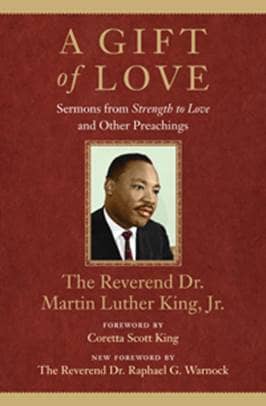
Ye have heard that it hath been said,
Thou shalt love thy neighbor, and hate
thine enemy. But I say unto you, Love
your enemies, bless them that curse you,
do good to them that hate you, and pray
for them which despitefully use you, and
persecute you; that ye may be children
of your Father which is in heaven.
Matthew 5:43–45
Probably no admonition of Jesus has been more difficult to follow than the command to “love your enemies.” Some men have sincerely felt that its actual practice is not possible. It is easy, they say, to love those who love you, but how can one love those who openly and insidiously seek to defeat you? Others, like the philosopher Nietzsche, contend that Jesus’ exhortation to love one’s enemies is testimony to the fact that the Christian ethic is designed for the weak and cowardly, and not for the strong and courageous. Jesus, they say, was an impractical idealist.
In spite of these insistent questions and persistent objections, this command of Jesus challenges us with new urgency. Upheaval after upheaval has reminded us that modern man is traveling along a road called hate, in a journey that will bring us to destruction and damnation. Far from being the pious injunction of a Utopian dreamer, the command to love one’s enemy is an absolute necessity for our survival. Love even for enemies is the key to the solution of the problems of our world. Jesus is not an impractical idealist: he is the practical realist.
I am certain that Jesus understood the difficulty inherent in the act of loving one’s enemy. He never joined the ranks of those who talk glibly about the easiness of the moral life. He realized that every genuine expression of love grows out of a consistent and total surrender to God. So when Jesus said “Love your enemy,” he was not unmindful of its stringent qualities. Yet he meant every word of it. Our responsibility as Christians is to discover the meaning of this command and seek passionately to live it out in our daily lives.
Let us be practical and ask the question, How do we love our enemies? First, we must develop and maintain the capacity to forgive. He who is devoid of the power to forgive is devoid of the power to love. It is impossible even to begin the act of loving one’s enemies without the prior acceptance of the necessity, over and over again, of forgiving those who inflict evil and injury upon us. It is also necessary to realize that the forgiving act must always be initiated by the person who has been wronged, the victim of some great hurt, the recipient of some tortuous injustice, the absorber of some terrible act of oppression. The wrongdoer may request forgiveness. He may come to himself, and, like the prodigal son, move up some dusty road, his heart palpitating with the desire for forgiveness. But only the injured neighbor, the loving father back home, can really pour out the warm waters of forgiveness.
Forgiveness does not mean ignoring what has been done or putting a false label on an evil act. It means, rather, that the evil act no longer remains as a barrier to the relationship.
Forgiveness is a catalyst creating the atmosphere necessary for a fresh start and a new beginning. It is the lifting of a burden or the cancelling of a debt. The words “I will forgive you, but I’ll never forget what you’ve done” never explain the real nature of forgiveness. Certainly one can never forget, if that means erasing it totally from his mind. But when we forgive, we forget in the sense that the evil deed is no longer a mental block impeding a new relationship. Likewise, we can never say, “I will forgive you, but I won’t have anything further to do with you.” Forgiveness means reconciliation, a coming together again. Without this, no man can love his enemies. The degree to which we are able to forgive determines the degree to which we are able to love our enemies.
– Dr. Martin Luther King, Jr., from the sermon “Loving Your Enemies”
Excerpted from “A Gift of Love: Sermons from Strength to Love and Other Preachings’” by The Reverend Dr. Martin Luther King, Jr. (Beacon Press, 2012). Reprinted with permission from Beacon Press and The Estate of Martin Luther King, Inc.

